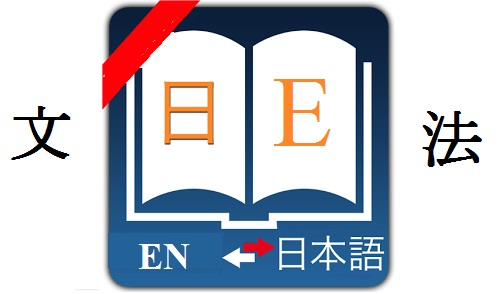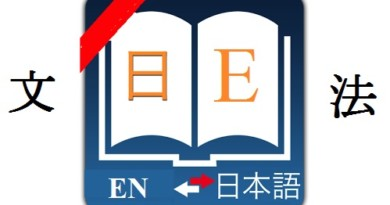Japanese ものの grammar monono

Let’s learn Japanese ものの grammar monono :
Contents
JLPT level : N2
Formation :
Nである+ものの
V+ものの
Aい+ものの
Aな+ものの
Meaning and how to use :
Clause + ものの
Meaning : Describe the meaning “but, although”. The following clause often describes events that don’t happen or are opposite with the events in the previous clause. Its meaning is similar to the grammar structure [のに].
Example :
このドレスはとても高いものの、有名なファッションデザイナーにデザインされたので流行っています。
Kono doresu ha totemo takai monono, yuumei na fasshon dezaina- ni dezain sareta node hayatte imasu.
Although this dress is very expensive, it is popular because it was designed by a famous fashion designer.
大学を卒業したものの、まだ就職ができずに毎日家でゆっくりしている。
Daigaku wo sotsugyou shita monono, mada shuushoku ga dekizuni mainichi ie de yukkuri shiteiru.
I graduated from university, but I still can’t find a job yet, so I relax at home everyday.
英語を5年間勉強したものの、今会話が知らないほど苦手だ。
Eigo wo gonenkan benkyou shita monono, ima kaiwa ga shiranai hodo nigate da.
I have studied English for 5 years but I’m terrible at conversations.
この小説は厚いものの、内容があまりない。
Kono shousetsu ga atsui monono, naiyou ga amari nai.
This novel is thick, but there is not much content in it.
このアルバイトは給料がちょっと高くないものの、軽いです。
Ano arubaito ha kyuuryou ga chotto takakunai monono, karui desu.
The salary of this part-time job is not very high, but this is an easy job.
彼は親切な人なものの、時々態度がよくないので、嫌われます。
Kare ha shinsetsu na hito na monono, tokidoki taido ga yokunai node, kiraware masu.
Although he is a kind person, he is hated by everyone because his attitude is not good sometimes.
あの人はできると言ったものの、逆に行動した。
Ano hito ha dekiru to itta monono, gyaku ni koudou shita.
He said he could do it, but he acted the opposite way.
友達と一緒に旅行に行くと約束したものの、現在行きたくなくなった。
Tomodachi to isshoni ryokou ni iku to yakusoku shita monono, genzai ikitaku naku natta.
I promised to go on a trip with my friends, but now I don’t want to go.
A「石田監督の新しい映画、見た?」
B「うん、見たよ。内容がいいものの、音楽と映像がちょっとねえ…」
A : “Ishida kantoku no atarashii eiga, mita?”
B : “Un, mita yo. Naiyou ga ii monono, ongaku to eizou ga chotto nee…”
A : “Have you seen Director Ishida’s new movie?”
B : “Yes, I have. The content is good, but the music and the images are a little….”
あの絵は色が明るいものの、鑑賞人に暗い気持ちを伝えると感じられる。
Ano e ha iro ga akarui monono, kanshounin ni kurai kimochi wo tsutaeru to kanji rare ru.
Although that picture is bright, it seems to convey a dark feeling to the viewers.
姉は楽しそうに出かけたものの、帰ったときはムツムツな顔をした。
Ane ha tanoshisou ni dekaketa monono, kaetta toki ha mutsumutsu na kao wo shita.
My elder sister went out happily, but when she came back, she had a messy face.
運転免許が取ったものの、車を買うお金が足りません。
Unten menkyo ga totta monono, kuruma wo kau okane ga tarimasen.
I have a driver’s license, but I don’t have enough money to buy a car.
天気が暑いものの、クーラーをつけません。
Tenki ga atsui monono, ku-ra- wo tsukemasen.
Although the weather is hot, I don’t turn on the air conditioner.
Japanese ものの grammar monono
Variations of ものの
…とはいうものの (tohaiu monono)
Usage :
Clause + とはいうものの
Meaning : Express that something is not like what is said.
Example :
十二月とはいうものの、まだ暑いですよ。
Juuni gatsu toha iumonono, mada atsui desu yo.
It’s December, but it’s still hot.
彼は腕が立つとはいうものの、この料理の正しい作り方がわからないでしょ。
Kare ha ude ga tatsu toha iumonono, kono ryouri no tadashii tsukuri kata ga wakaranai desho.
He is skilled, but he probably doesn’t know how to make this dish correctly.
旅行に行きたいと言うとはいうものの、まだ仕事が忙しくてなかなか休めない。
Ryokou ni ikitai to iu toha iu monono, mada shigoto ga isogashikute nakanaka yasumenai.
I said I wanted to go on a trip, but I’m still busy with work and can’t take a rest.
A「冬だとはいうものの、暑いですね。」
B「そうですね。」
A : “Fuyu da tohaiu monono, atsui desu ne.”
B : “Sou desune.”
A : “It’s winter, but it’s hot.”
B : “That’s right.”
私の家に一番近いスパートとはいうものの、歩いて1時間ぐらいかかるよ。
Watashi no ie ni ichiban chikai supa-to toha iu monono, aruite ichijikan gurai kakaru yo.
Although it’s the closest supermarket from my house, it takes about an hour to walk.
母ととても親しいとはいうものの、ときどき年のギャップがあって言いにくいこともあると感じます。
Haha to totemo yasashii toha iumonono, tokidoki toshi no gyappu ga atte iinikui koto mo aru to kanji masu.
I am very closed to my mother, but sometimes I find it difficult to say something to her because of the age gap.
夏休みとはいうものの、毎日働いています。
Natsu yasumi toha iumonono, mainichi hataraite imasu.
Although it is summer vacation, I work every day.
計画が成功したとはいうものの、いろいろなことがまだ完了せずに終わりました。
Keikaku ga seikou shita toha iumonono, iroiro na koto ga mada kanryou sezuni owari mashita.
Although the plan was successful, many things ended without being completed yet.
A「あの人はペットを飼っているとはいうものの、世話もしません。」
B「本当に無責任なやつだ。」
A : “Ano hito ha petto wo katte iru toha iu monono, sewa mo shimasen.”
B : “Hontoi ni musakinin na yatsu da.”
A : “That person has a pet, but he doesn’t take care of it.”
B : “What an irresponsible guy.”
天気予報によると、雪がもう降っていないそうだとはいうものの、午後突然大雪だ。
Tenki yohou ni yoruto, yuki ga mou futte inai sou da toha iu monono, gogo totsuzen ooyuki da.
According to the weather forecast, it is not snowing anymore, but it’s suddenly snowing heavily in the afternoon.
A「父は病気だとはいうものの、毎日不健康な生活を送っている。何度も注意したのに全然気をつけないよ。」
B「大変ですね。」
A : “Chichi ha byouki da toha iu monono, mainichi fukenkou na seikatsu wo okutteiru. Nando mo chuui shita noni zenzen ki wo tsukenai yo.”
B : “Taihen desu ne.”
A : “Although my father is ill, he lives an unhealthy life every day. Although I have advised him many times, he isn’t careful at all.”
B : “It is serious.”
田中選手は優勝したとはいうものの、高い成績ではないので、満足しなさそうです。
Tanaka senshu ha yuushou shita toha iu monono, takai seiseki dehanai node, manzoku shinasa sou desu.
Although the player Tanaka won the championship, he seems dissatisfied because it is not a high record.
とはいうものの (tohaiu monono)
Usage : It is placed at the beginning of the second sentence to connect the two sentences.
Meaning : Describe the meaning “the event described in the second sentence doesn’t happen as expected.”
Example :
パーティーの準備が全部できた。とはいうものの、客をまだ招待状を送っていません。
Pa-ti- no junbi ga zenbu dekita. tohaiu monono, kyaku wo mada shoutaijou wo okutte imasen.
I have already prepared for the party. And yet, I haven’t sent the invitations to the guests.
アメリカに留学する計画を立てました。とはいうものの、親と一緒に相談せずに決めました。
Amerika ni ryuugaku suru keikaku wo tatemashita. Toha iu monono, oya to issho ni soudan sezu ni kimemashita.
I made a plan to study in the United States. However, I decided without discussing with my parents.
連休を取って旅行しようと思います。とはいうものの、連休でどこもいかなかった。
Renkyuu wo totte ryokou shiyou to omoimasu. Toha iu monono, renkyuu de doko mo ikanakatta.
I’m going to take consecutive holidays and travel. However, I didn’t go anywhere during the holidays.
A「発展途中の国では首相が新しい政策を出しました。とはいうものの、人民の生活はまだ良くならないそうだよ。」
B「もっと実践的な政策を出したほうがいいと思いますけど…」
A : “Hatten tojou no kuni deha shushou ga atarashii seisaku wo dashimashita. Tohaiu monono, jinmin no seikatsu ha mada yoku naranai sou da yo.”
B : “Motto jissen teki na seisaku wo dashita hou ga ii to omoimasu kedo…”
A : “In developing countries, the prime minister has made new policies. Still, people’s lives are not good.”
B : “I think it’s better to made a more practical policy…”
石田さんは日本語能力試験でN2を取りました。とはいうものの、日本語が全然喋れません。
Ishida san ha nihongo nouryoku shiken de N2 wo tori mashita. Toha iumonono, nihongo ga zenbu shabere masen.
Mr. Ishida took N2 certificate in the Japanese Language Proficiency Test. However, he can’t speak Japanese at all.
A「佐藤さんの家では本が山ほど積んでいます。とはいうものの、彼女は一冊も読まないって言いますよ。」
B「あ、それは積読っていうことですね。」
A : “Satou san no ie deha hon ga yama hodo tsunde imasu. Toha iu monono, kanojo ha issatsu mo yomanai tte iimasu yo.”
B : “A, sore ha tsundoku tte iu koto desu ne.”
A : “There is a pile of books in Ms. Sato’s house. However, she says that she didn’t read any books.”
B : “Oh, that is called “tsundoku”.”
君はお腹がペコペコだと言います。とはいうものの、あまり食べないね。
Kimi ha ohara ga pekopeko da to ii masu. Toha iu monono, amari tabenai ne.
You say you were starving. But you don’t eat much.
この歌はまずい。とはいうものの、何度も聞き繰り返した。
Kono uta ha mazui. Toha iu monono, nando mo kiki kurikae shita.
This song is bad. However, I heard it over and over again.
A「あの子はあまり勉強しません。とはいうものの、試験で学生全員の中で一位になりました。」
B「天才かなあ…」
A : “Ano ko ha amari benkyou shimasen. Toha iu monono, shiken de gakusei zenin no naka de ichii ni narimashita.”
B : “Tensai kanaa…”
A : “That child doesn’t study much. But it was ranked first in the exam among all students.”
B : “Maybe it’s a genius….”
秋になりました。とはいうものの、紅葉がまだ見えません。
Aki ni narimashita. Toha iu monono, kouyou ga mada mie masen.
It is autumn. However, I still can’t see the autumn leaves.
兄は免許が取りました。とはいうものの、運転するのが苦手です。
Ani ha menkyo ga tori mashita. Toha iu monono, unten suru no ga nigate desu.
My brother got a driver’s license. However, he is not good at driving.
Related structures :
というものだ(N4)toiumonoda
もの/もん mono/ mon
ものか monoka
ものがある monogaaru
ものだ monoda
ものだから monodakara
ものではない monodehanai
ものでもない monodemonai
ものとおもう monotoomou
ものとする monotosuru
をものともせずに womonotomosezuni, womonoto mosezuni
ものなら mononara
ものの monono
ものを monowo
above is Japanese ものの grammar monono. if you don’t understand the signs we used in fomation, you can find their meaning here : signs used in Japanese grammar structures.
You can search the structure you want by using the search tool on our website (using key : grammar + ‘structure name’ or you can find more Japanese grammar structures in the following category : Japanese grammar dictionary
